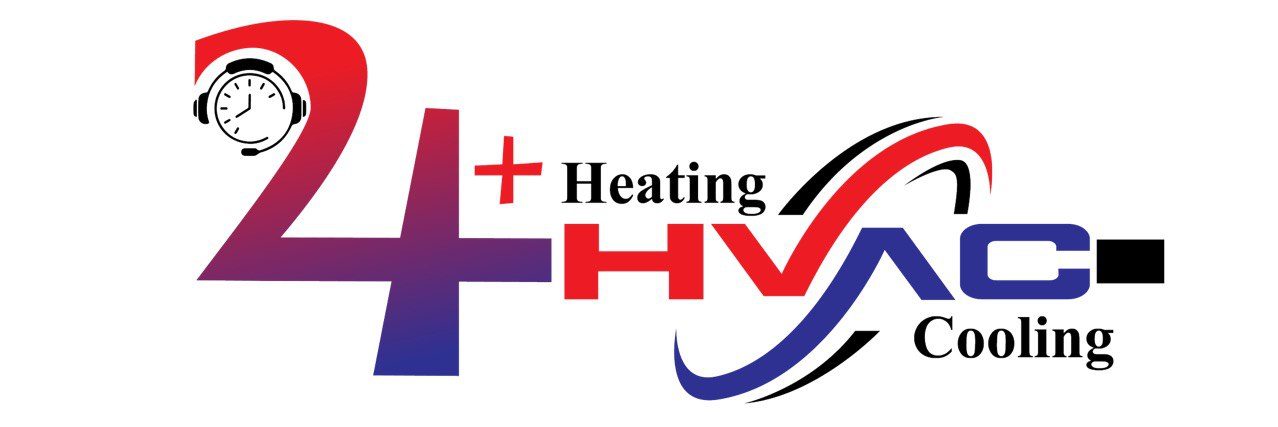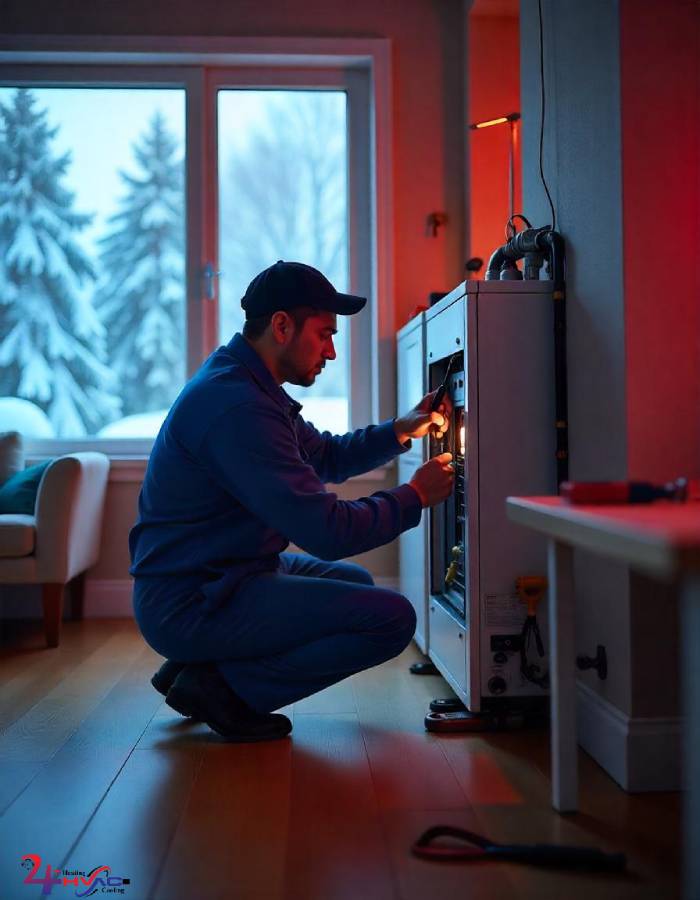Introduction
When winter hits and temperatures drop, a malfunctioning heating system can leave you in a chilly predicament. Understanding how to react when your heat goes out is crucial for maintaining comfort and safety in your home. This guide will walk you through the immediate steps to take, common causes of heating failures, and how to find reliable heating services in Vancouver. By being prepared, you can quickly restore warmth to your home and prevent further damage to your heating system.
1. Understanding Common Causes of Heating Failures
Heating failures can happen for various reasons, and understanding these common causes can help homeowners address issues before they escalate.
- Thermostat Issues: A malfunctioning thermostat can cause inconsistent temperatures or prevent the system from turning on.
- Power Supply Problems: Electrical issues, such as blown fuses or tripped circuit breakers, can disrupt heating.
- Fuel Supply Issues: For gas heating systems, a lack of gas supply can lead to failure.
- Clogged Filters: Dirty air filters can restrict airflow, causing the heating system to work harder and eventually fail.
By identifying the symptoms associated with these issues, homeowners can take immediate action or inform professionals accurately.
2. Immediate Steps to Take When Your Heat Goes Out
When your heating system fails, the first steps you take can significantly affect your comfort and safety.
- Check the Thermostat: Ensure it’s set to “heat” and the desired temperature.
- Inspect Power Sources: Verify that the system is receiving power, checking fuses and breakers.
- Look for Airflow Issues: Check vents for blockages and ensure that air filters are clean.
- Listen for Unusual Sounds: Strange noises can indicate specific issues, guiding troubleshooting efforts.
Taking these steps can help you quickly identify the problem and communicate effectively with heating service professionals. Need professional Air Conditioning Services in Richmond? 24plushvac offers efficient and reliable cooling services. Book your appointment today!”
3. DIY Troubleshooting Tips for Homeowners
Before calling a heating service, some homeowners may want to try troubleshooting minor issues themselves.
- Reset Your System: Sometimes, a simple reset can resolve minor glitches.
- Replace Air Filters: Regularly changing filters can enhance efficiency and prevent future breakdowns.
- Check Vents: Ensure that all vents are open and unobstructed to allow proper airflow.
- Inspect Pilot Lights: For gas heaters, ensure that the pilot light is lit.
While DIY troubleshooting can save time, knowing your limits is crucial. If issues persist, it’s best to consult a professional.
4. Knowing When to Call for Professional Help
While some issues can be resolved at home, others require the expertise of heating professionals.
- Persistent Issues: If basic troubleshooting doesn’t resolve the problem, it’s time to call for help.
- Unusual Noises: Loud or strange sounds from the heating system can indicate serious problems.
- Inconsistent Heating: If some rooms are warm while others are cold, professional assessment is necessary.
- Foul Odors: Strange smells can signal gas leaks or other hazardous conditions.
Understanding when to call a heating service can prevent further damage and ensure safety.
5. How to Choose the Right Heating Services in Vancouver
Selecting the right heating service provider is critical for effective repairs.
- Research Credentials: Look for licensed and insured contractors with positive reviews.
- Ask for Recommendations: Word-of-mouth referrals from friends and family can lead to trustworthy services.
- Check Experience: for companies with extensive experience in heating repairs and installations.
- Request Estimates: Get multiple quotes to ensure competitive pricing and clear expectations.
Taking the time to choose the right provider can lead to better service and long-term satisfaction. Stay cool with expert Air Conditioning Services in Burnaby from 24plushvac! Contact us today to schedule your service and enjoy a comfortable home.”
6. Understanding Heating System Types
Different types of heating systems can affect the troubleshooting and repair process.
- Furnaces: Commonly powered by gas or electricity, they heat air and distribute it through ducts.
- Boilers: These systems heat water and provide steam or hot water for heating.
- Heat Pumps: Versatile systems that can provide both heating and cooling by transferring heat.
- Radiant Heating: Systems that heat floors or walls, providing an even temperature throughout the room.
Familiarity with your heating system type can aid in understanding potential issues and necessary services.
7. Emergency Heating Services: What to Expect
When you contact emergency heating services, knowing what to expect can ease concerns.
- Rapid Response: Most emergency services prioritize quick responses, especially during cold weather.
- Initial Assessment: Technicians will perform a thorough evaluation to identify the problem.
- Transparent Pricing: Reputable services will provide clear estimates before beginning repairs.
- Post-Service Instructions: Expect guidance on maintaining your heating system to prevent future issues.
Being informed about the emergency service process can help you feel more at ease during a heating crisis.
8. Importance of Regular Maintenance
Regular maintenance can prevent unexpected heating failures and extend the lifespan of your system.
- Routine Inspections: Professional check-ups can catch issues before they become major problems.
- Cleaning Components: Regular cleaning of filters and ducts enhances efficiency and airflow.
- System Tune-Ups: Annual tune-ups ensure systems operate at peak efficiency, saving energy costs.
- Documentation: Keeping records of maintenance helps in diagnosing future issues.
Investing in regular maintenance can save you money and stress in the long run.
9. Winter Safety Tips for Homeowners
When the heat goes out, ensuring your safety becomes paramount.
- Layer Up: Wear warm clothing and use blankets to stay comfortable.
- Avoid Using Ovens: Never use ovens or other non-heating appliances to warm your home.
- Check Carbon Monoxide Detectors: Ensure detectors are working, especially if using alternative heating sources.
- Stay Informed: Keep updated on local weather and alerts that may affect heating services.
Prioritizing safety can help you manage emergencies more effectively.
10. The Role of Technology in Heating Services
Advancements in technology are changing how heating services operate.
- Smart Thermostats: These devices allow homeowners to monitor and control heating remotely.
- Predictive Maintenance: Some services use technology to predict issues before they arise, minimizing downtime.
- Energy Management Systems: These systems optimize energy use, leading to cost savings.
- Remote Diagnostics: Technicians can often diagnose problems remotely, speeding up service times.
Understanding these technologies can enhance your heating service experience. Looking for reliable Air Conditioning Services in Vancouver? 24plushvac provides top-notch cooling solutions to keep you comfortable all year round. Call us now!
11. Emergency Heating Service Costs
Knowing the costs associated with emergency heating services can help you prepare.
- Service Call Fees: Most companies charge a fee to visit your home, which may vary by location.
- Hourly Rates: Labor costs can vary depending on the time of day and urgency.
- Parts and Repairs: The cost of parts will depend on the type of system and the severity of the issue.
- Maintenance Contracts: Some companies offer maintenance plans that can reduce costs for emergency services.
Being informed about potential costs can help you budget for emergencies.
12. Customer Reviews and Testimonials
Customer feedback can guide your choice of heating services in Vancouver.
- Online Reviews: Websites like Google and Yelp can provide insight into customer satisfaction.
- Request References: Don’t hesitate to ask providers for references from past clients.
- Social Media Insights: Check company social media pages for reviews and engagement with customers.
- Word of Mouth: Ask friends and family about their experiences with local heating services.
Taking the time to research can lead to a more reliable service experience.
13. Preparing for Future Emergencies
Preparation can make a significant difference when it comes to heating emergencies.
- Create an Emergency Plan: Develop a plan outlining what to do in case of heating failure.
- Locate Emergency Numbers: Keep a list of reliable heating service providers on hand for quick access.
- Invest in Portable Heaters: Having a backup heat source can be invaluable during emergencies.
- Schedule Regular Maintenance: Proactively addressing system issues can reduce the likelihood of emergencies.
Being prepared can provide peace of mind and ensure you’re ready for any heating crisis.
Conclusion
Experiencing a heating failure can be stressful, especially during the coldest months. However, knowing what steps to take can help you stay calm and act quickly. From troubleshooting simple issues to calling in professional heating services in Vancouver, you have options to restore comfort to your home. Prioritize regular maintenance to prevent future emergencies and ensure that your heating system operates efficiently year-round. Don’t let the cold catch you off guard—be proactive in keeping your home warm and inviting.
Don’t wait until it’s too late! Schedule your heating and cooling service today with 24plushvac.


